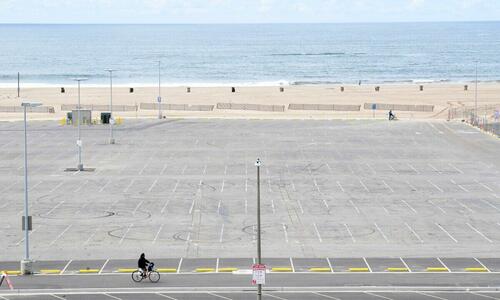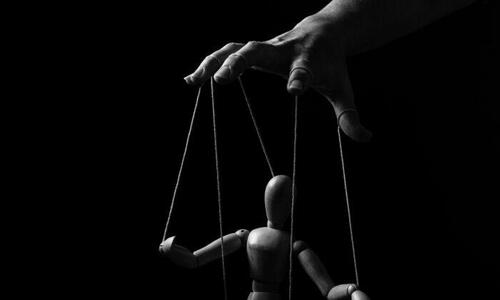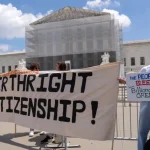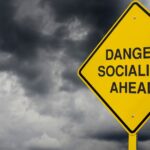
Authored by Jeffrey Tucker via The Epoch Times,
Two years ago on this day, I posted a piece that was very hard to write. It concerned precisely who was benefiting from the lockdowns, masking, and all that was associated with it, including school and business closures and travel restrictions.
As much as we would all prefer for everyone to be concerned about big issues like public health and human rights, it’s sadly the case that industrial interests (and even ruling-class evildoers) sometimes prevail over both.
Obviously, most people all over the world have lost so much over three years, not only health and income but also hope. It’s tragic. Meanwhile, many others seem to have made out like bandits during the biggest transfer of wealth in the shortest time in the history of humanity.
(null xtract/Pexels)
Many groups and sectors had a kind of hankering for a pandemic. They turned a widespread and mostly manageable pathogen—doctor/patient relationships and reasonable cautions on the part of the vulnerable—and converted it into the basis for a global panic of compulsion and coercion that overthrew centuries of progress in law and liberty.
Let’s just go through the list of beneficiaries I first compiled two years ago.
1. The tech companies that became so enraptured with the digital world—and we can include online retailers in this—that they forgot all the people who cannot and do not want to live entirely outside the physical world. To be sure, many of these high flying companies are now coming back to earth thanks to higher interest rates. Even Zoom may be falling on hard times. To which I say: Schadenfreude.
2. The pharmaceutical companies with hundreds of billions of investment in labs and distribution circles that wanted to ply their wares in the midst of emergencies, in addition to the PCR testing industry, not to mention mask and ventilator makers and so many other grifting companies in this space. They not only gain from tremendous subsidies and indemnification from damages; they even got governments to conscript their customer base.
3. Public health intellectuals, who for at least a decade and a half had fallen for the romance of computer modeling, were itching to try out a new method for disease mitigation. They must have gotten quite a kick out of watching the experiment tried out in real time. Speaking of: we haven’t heard from these people in a very long time. They seem conveniently very quiet. Notice how the prophets of doom who were all over the news three years ago, with their magic ability to see the future with precision, have completely vanished?
4. The mega-billionaire Bill Gates found himself vexed by computer viruses that were wrecking his Windows operating system and thereby developed a passion for blocking viruses in general, while failing to understand the difference between biology and computer hardware. He seems to have done very well for himself, not only with his investments but now with his new book telling us how he will single-handedly change the path of the global climate.
5. Government officials certainly had a field day trying out new uses of power. My goodness, they even got their mitts on social media, scripting who gets to speak and who cannot. The national security state hasn’t had this much fun since the Cold War. It was, in short, the most successful ramp up of government power the world over in modern times or maybe ever. Disease panic proved more advantageous to them than ever war and economic depression.
6. Media companies, who live on clicks and know with certainty that public panic is the best way to guarantee consumer attention, did especially well, given that millions were locked at home with nothing else to do. Talk about a captive audience!
7. The Chinese government, which was supremely annoyed at the Trump administration’s trade policies, successfully trolled the West into believing that China nixed the virus through totalitarian controls. It can now brag to have scripted the pandemic response for the whole world, and is now goading the World Health Organization into doing ever more of it.
8. Rabid opponents of the Trump administration, who had failed to wreck it through accusations of Russian collusion and then impeachment over a phone call to Ukraine, finally turned to creating tremendous social, economic, and political chaos by massively overblowing the severity of a widespread viral pathogen, which itself became a metaphor for the political infection they believed afflicted the country. This was the final undoing of the administration, much to the celebration of his political opponents.
9. School teachers’ unions that have been wanting to strike for years in order to extract pay and benefits from the taxpayer, worried that doing so would turn their public against them; for them, lockdowns were the perfect excuse to find another way. They abandoned their jobs and got paid anyway. Then they tried to make the racket last as long as possible.
10. A ruling-class population that has lost touch with people who cannot live on their computers, had become increasingly detached from the flow of life as it exists in the physical world, utterly failed to empathize with the suffering of others under lockdown. But they rather warmed up to the mess they had created because it meant they could make the big bucks while never changing out of their PJs.
Social distance: A cyclist rides past a Santa Monica beach parking lot in Santa Monica, Calif., on March 24, 2020. (Frederic J. Brown/AFP via Getty Images)
Those were my choices two years ago and they hold up rather well, if I may say so. No one interest group could have achieved this on its own. It required a perfect storm. It doesn’t have to be a conspiracy much less a specific plot. It only requires that the right confluence of events present themselves in a way that prompts action and cooperation.
I might add one more push for pandemic that touches on a general philosophy of life. The world is overflowing these days with people who are consumed by ideology. They have a perception that something is fundamentally wrong with the world and are possessed with a burning passion to fix it. They long for big change, mighty drama, epic shifts in history. For them, the marginally improving world of bourgeois existence seems dull and uneventful. The pandemic was for them something exciting and momentous: it presented a chance for a Great Reset.
That we will look back with astonishment at what has happened to the world is a near certainty. The folly! And people of the future will never stop asking that great question of why. The answer is finally unsatisfying. It was a massive screwup by people and groups who wanted to try something completely new, none of whom were willing to bear responsibility for the results. And from that screwup, all the wrong people got riches and power.
It will be up to the rest of us to pick up the pieces and get life on the right track again. This does not happen without accountability and some measure of justice.
Authored by Jeffrey Tucker via The Epoch Times,
Two years ago on this day, I posted a piece that was very hard to write. It concerned precisely who was benefiting from the lockdowns, masking, and all that was associated with it, including school and business closures and travel restrictions.
As much as we would all prefer for everyone to be concerned about big issues like public health and human rights, it’s sadly the case that industrial interests (and even ruling-class evildoers) sometimes prevail over both.
Obviously, most people all over the world have lost so much over three years, not only health and income but also hope. It’s tragic. Meanwhile, many others seem to have made out like bandits during the biggest transfer of wealth in the shortest time in the history of humanity.
(null xtract/Pexels)
Many groups and sectors had a kind of hankering for a pandemic. They turned a widespread and mostly manageable pathogen—doctor/patient relationships and reasonable cautions on the part of the vulnerable—and converted it into the basis for a global panic of compulsion and coercion that overthrew centuries of progress in law and liberty.
Let’s just go through the list of beneficiaries I first compiled two years ago.
1. The tech companies that became so enraptured with the digital world—and we can include online retailers in this—that they forgot all the people who cannot and do not want to live entirely outside the physical world. To be sure, many of these high flying companies are now coming back to earth thanks to higher interest rates. Even Zoom may be falling on hard times. To which I say: Schadenfreude.
2. The pharmaceutical companies with hundreds of billions of investment in labs and distribution circles that wanted to ply their wares in the midst of emergencies, in addition to the PCR testing industry, not to mention mask and ventilator makers and so many other grifting companies in this space. They not only gain from tremendous subsidies and indemnification from damages; they even got governments to conscript their customer base.
3. Public health intellectuals, who for at least a decade and a half had fallen for the romance of computer modeling, were itching to try out a new method for disease mitigation. They must have gotten quite a kick out of watching the experiment tried out in real time. Speaking of: we haven’t heard from these people in a very long time. They seem conveniently very quiet. Notice how the prophets of doom who were all over the news three years ago, with their magic ability to see the future with precision, have completely vanished?
4. The mega-billionaire Bill Gates found himself vexed by computer viruses that were wrecking his Windows operating system and thereby developed a passion for blocking viruses in general, while failing to understand the difference between biology and computer hardware. He seems to have done very well for himself, not only with his investments but now with his new book telling us how he will single-handedly change the path of the global climate.
5. Government officials certainly had a field day trying out new uses of power. My goodness, they even got their mitts on social media, scripting who gets to speak and who cannot. The national security state hasn’t had this much fun since the Cold War. It was, in short, the most successful ramp up of government power the world over in modern times or maybe ever. Disease panic proved more advantageous to them than ever war and economic depression.
6. Media companies, who live on clicks and know with certainty that public panic is the best way to guarantee consumer attention, did especially well, given that millions were locked at home with nothing else to do. Talk about a captive audience!
7. The Chinese government, which was supremely annoyed at the Trump administration’s trade policies, successfully trolled the West into believing that China nixed the virus through totalitarian controls. It can now brag to have scripted the pandemic response for the whole world, and is now goading the World Health Organization into doing ever more of it.
8. Rabid opponents of the Trump administration, who had failed to wreck it through accusations of Russian collusion and then impeachment over a phone call to Ukraine, finally turned to creating tremendous social, economic, and political chaos by massively overblowing the severity of a widespread viral pathogen, which itself became a metaphor for the political infection they believed afflicted the country. This was the final undoing of the administration, much to the celebration of his political opponents.
9. School teachers’ unions that have been wanting to strike for years in order to extract pay and benefits from the taxpayer, worried that doing so would turn their public against them; for them, lockdowns were the perfect excuse to find another way. They abandoned their jobs and got paid anyway. Then they tried to make the racket last as long as possible.
10. A ruling-class population that has lost touch with people who cannot live on their computers, had become increasingly detached from the flow of life as it exists in the physical world, utterly failed to empathize with the suffering of others under lockdown. But they rather warmed up to the mess they had created because it meant they could make the big bucks while never changing out of their PJs.
Social distance: A cyclist rides past a Santa Monica beach parking lot in Santa Monica, Calif., on March 24, 2020. (Frederic J. Brown/AFP via Getty Images)
Those were my choices two years ago and they hold up rather well, if I may say so. No one interest group could have achieved this on its own. It required a perfect storm. It doesn’t have to be a conspiracy much less a specific plot. It only requires that the right confluence of events present themselves in a way that prompts action and cooperation.
I might add one more push for pandemic that touches on a general philosophy of life. The world is overflowing these days with people who are consumed by ideology. They have a perception that something is fundamentally wrong with the world and are possessed with a burning passion to fix it. They long for big change, mighty drama, epic shifts in history. For them, the marginally improving world of bourgeois existence seems dull and uneventful. The pandemic was for them something exciting and momentous: it presented a chance for a Great Reset.
That we will look back with astonishment at what has happened to the world is a near certainty. The folly! And people of the future will never stop asking that great question of why. The answer is finally unsatisfying. It was a massive screwup by people and groups who wanted to try something completely new, none of whom were willing to bear responsibility for the results. And from that screwup, all the wrong people got riches and power.
It will be up to the rest of us to pick up the pieces and get life on the right track again. This does not happen without accountability and some measure of justice.
Loading…








